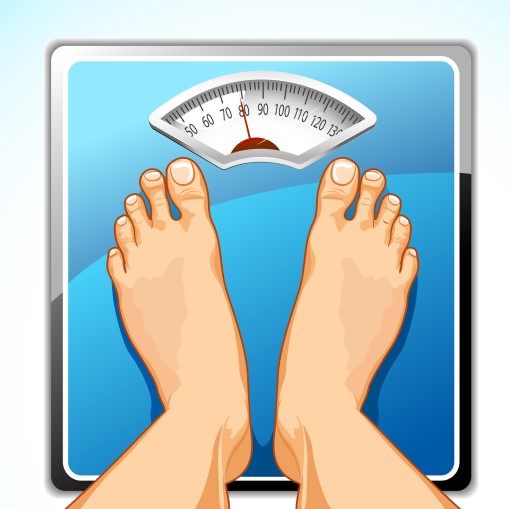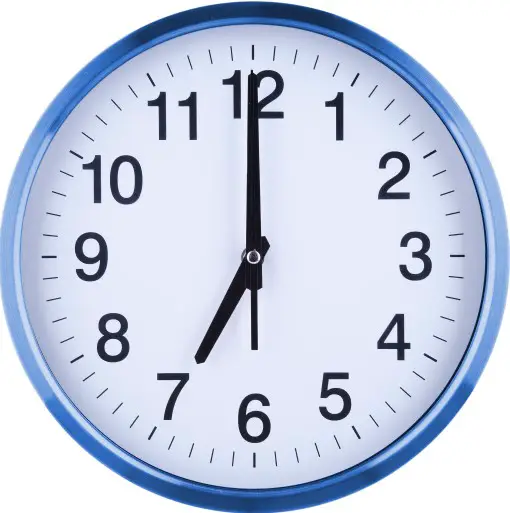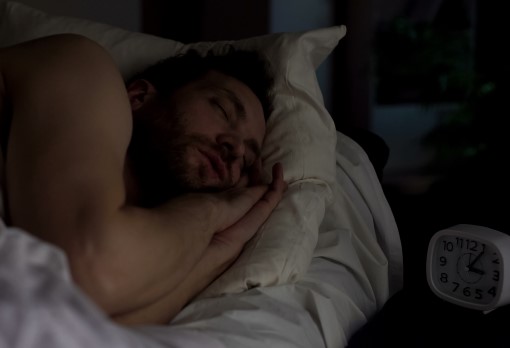
What is the leading cause of sleep apnea?
By Jason Wooden, PhD | September 16, 2023
Regardless of the cause, sleep apnea is nothing to play with…
It’s no surprise people are curious about the leading causes of sleep apnea. After all, it’s a condition that’s estimated to affect up to a billion people and it’s nothing to play with.
I know from personal experience how living with sleep apnea can make for miserable nights and turn you into a sleep-deprived zombie during the day.
It’s a common sleep disorder in which your breathing repeatedly stops and restarts while you’re asleep. For some people, these breathing interruptions may occur up to 30 times or more!
The reason it’s such a sleep wrecker is because as the body becomes oxygen deprived your brain arouses you out of deep restorative sleep into a lighter sleep. When you wake up in the morning, you feel unrested and miserable.
Besides ruining your days, sleep can lead to other problems if left untreated. It’s been linked to high blood pressure, heart disease, stroke, diabetes, and depression.
Relationships can take a hit too since you’ve got nothing left to give.
So, it’s really important to know sooner rather than later what you’re up against.
And it’s understandable if you have a bunch of questions about sleep apnea including what’s the biggest cause.
So, what is the leading cause of sleep apnea?
There are a few things you should know upfront.
First, there are two major types of sleep apnea, obstructive and central sleep apnea.
Obstructive sleep apnea (OSA), the more common type, happens when the airway gets too narrow and becomes blocked while you sleep. This is what interrupts your breathing and causes many people to snore.
Central sleep apnea (CSA) is a communication problem. It happens because the brain is not sending the right signals to the muscles that control breathing.
Secondly, we’re going to look at what we know about main causes for obstructive sleep apnea since it’s the type that most people have.
(You can learn more about the causes of central sleep apnea here.)
You shouldn’t be too surprised there are many causes and risk factors for obstructive sleep apnea. There’s a variety of health issues that can lead to the airway getting more narrow.
It turns out the leading cause for obstructive sleep apnea is weight. In fact, somewhere around 70% of OSA patients have been found to be overweight or obese.

A population-based study of 690 randomly selected Wisconsin residents found that a 10% weight gain predicted a 6-fold increase in the odds of getting sleep apnea.
BMI (body mass index) is now considered to be a clinical predictor of sleep apnea.
So, what’s the link between weight and airway obstruction? As you gain weight, extra fat tissue builds up around the neck and narrows the airway.
What can I do if I suspect weight is the main cause for my sleep apnea?
Even if you suspect weight is the main cause for your sleep apnea, you should still see a doctor as there are other risk factors that could be worsening your symptoms.
As far weight and BMI, the good news is that studies have found even a small amount of weight loss can significantly improve symptoms. The same Wisconsin study I mentioned earlier found that a 10% weight loss predicted a 26% decrease in sleep apnea severity.
It goes without saying there are many other benefits from weight loss including reduced risk for diabetes, cardiovascular disease, stroke, joint pain, and cancer.
Among the things that can help with weight loss are:

1) Eating healthier
Start by paying more attention to WHAT you eat. Ideally, you want a diet that includes a variety of healthy foods that promote health and support healthy weight loss.
So, ditch the sugary drinks and carb-laden foods. Instead, eat more fruits, vegetables, whole grains, and lean protein.
Learn more:
Diet & Weight Loss (Harvard Health Publishing)
Healthy Eating for a Healthy Weight (US CDC)

2) Change WHEN you eat
It’s not just about what you eat. Eating too late in the day, especially before bedtime, can lead to weight gain. What’s worse some foods can come back to bite your sleep.
Try eating dinner earlier in the evening. If you find you need a bedtime snack, opt for something healthy such as fruit, nuts, yogurt, or lean turkey slices.

3) Specialized diets
We’re living in a golden age of dieting with just about something for everyone. There seems to be an overwhelming parade of options.
It’s worth checking with your doctor and consulting a nutrition to make sure you’re doing things the right way.
Among the more well-known diets are:
DASH Diet
DASH stands for Dietary Approaches to Stop Hypertension. This is low-sodium diet designed to help people lower their blood pressure without using drugs but it’s also a healthy way to lose weight.
Focusing on daily and weekly nutritional goal, the DASH diet emphasizes vegetables, fruits, whole grains, low-fat and fat-free dairy, limits on saturated fats, and limits on sugar intake. More
Intermittent fasting
This diet focuses on restricting the time of the day when you eat. Research has shown that consuming your meals in a short time period during the day can help some individuals more easily lose weight.
More:
5 questions about intermittent fasting (NIH)
How to naturally lose weight fast (MedicalNewsToday)
Mediterranean Diet
Based of the healthy lifestyles of Greece, Italy, Spain, and Portugal, this diet focuses on consuming fewer meats and carbohydrates. Instead, the emphasis is on consuming more plant-based foods and healthy mono-saturated fats. More
Plant-Based Diet
This diet emphasizes consuming plant foods including fruit, vegetables, grains, and legumes. Meat, dairy, and eggs are avoided.
More:
What is a plant-based diet and why should you try it? (Harvard Health Publishing)
5 benefits of a plant-based diet (MD Anderson Cancer Center)
Learn more about weight loss diets:
Weight loss: Choosing a diet that’s right for you

4) Exercise
Physical activity increases the number of calories your body uses for energy which can help with wight loss. It’s also great for sleep and a natural mood booster.
More:
Physical Activity for a Healthy Weight (US CDC)
The 8 Best Exercises for Weight Loss (healthline)
The Best Fat-Burning Exercises for at Home and the Gym (Everyday Health)

5) Improve your sleep
Studies show that getting fewer than 5-6 hours of sleep can increase your risk for obesity. It’s thought that the poor sleep slows down metabolism and increases the production of hormones that promote fat storage.
Make sure you’re following the rules for healthy sleep, aka sleep hygiene. It’s the everyday habits that can make or break sleep.
For better sleep, you should:
- keep regular wake up and sleep times
- avoid naps
- exercise during the day
- avoid large meals, alcohol, or stimulants such as caffeine
before bedtime - maintain a bedtime routine that prepares you for sleep
- keep your bedroom quiet, dark, and cool
- avoid electronics use in the bedroom

6) Stress management
It’s also important to do what ever you can to manage the stress in your life. Stress triggers the release of hormones which can increase your appetite and promote fat storage.
There’s lots of things that can help stress – lifestyle changes, aerobic exercise, and relaxation exercises. Getting regular sleep will also help.

7) Weight loss counseling
Besides feeling stressed and anxious, many people over eat when struggling with depression and other negative emotions.
Weight loss counseling can help you identifying your eating triggers and emotional issues that affect your eating habits.
There’s a right way and a wrong to go about weight loss. What you really want is to be at a healthier weight long term:
Losing Weight (US CDC)
How to Lose Weight and Keep It Off (HelpGuide.org)
Other sleep apnea risk factors you should consider
While weight may be the leading cause for sleep apnea, it’s important to keep in mind it’s not the only risk factor. There could be other things going on involved with your sleep apnea symptoms:
Among the other risk factor you should consider are:
- Large neck – greater than 16-17 inches
- High blood pressure – very common in people with sleep apnea
- Enlarged tonsils or tongue – may block the airway
- Alcohol, sedatives – they relax the muscles in your throat
- Smoking – may irritate and inflame the upper airway
- Allergies, nasal congestion – you’re more likely develop sleep apnea if you have difficulties breathing through nose
- Other conditions – people who’ve had heart failure or a stroke are more at risk for central sleep apnea
A doctor can help you figure this out which can help make the road to recovery easier.
Sleep apnea link to weight and nutrition:
Can losing weight help sleep apnea?
Yes, skinny women get sleep apnea too
Foods that help sleep apnea – 5 to try for better sleep
7 Foods to avoid when having insomnia
Sleep apnea basics:
Does sleep apnea reduce life expectancy?
Can sleep apnea get worse over time?
Estimation of the global prevalence and burden of obstructive sleep apnoea: a literature-based analysis, Lancet Respir Med. 2019 Aug; 7(8): 687–698. (Source)
Obesity, Sleep Apnea, and Hypertension. Hypertension. 2003;42:1067–1074 (Source)
Longitudinal study of moderate weight change and sleep-disordered breathing. JAMA. 2000 Dec 20;284(23):3015-21. (Source)
5 Risk Factors of Sleep Apnea, Gorman Health & Wellness website (Source)
The Immediate Health Benefits of Losing Weight, 2022, University Hospitals website (Source)
Healthy Eating for a Healthy Weight, CDC website (Source)
The Power of a Plant-Based Diet for Good Health, Physicians Committee for Responsible Medicine website (Source)
How to naturally lose weight fast, 2023, MedicalNewsToday (Source)
Connect with us:
About Us
Better Sleep Simplified® was founded as a place for you to get clear and well-researched information.
Our goal is to make sure you know about your options so that you take action sooner rather than later.
Check us out on YouTube:
Watch and Learn
Helpful sleep tips, interesting sleep facts and statistics you want to know about
Affiliate Disclosure
This site is a participant in the Amazon Services LLC Associates Program and other affiliate advertising programs designed to provide a means for sites to earn advertising fees by advertising and linking to them.
Important: BetterSleepSimplified.com is for informational purposes only and is not intended or implied to be a substitute for professional medical advice, diagnosis, or treatment. Always consult a physician for sleep and health concerns. See additional information.
